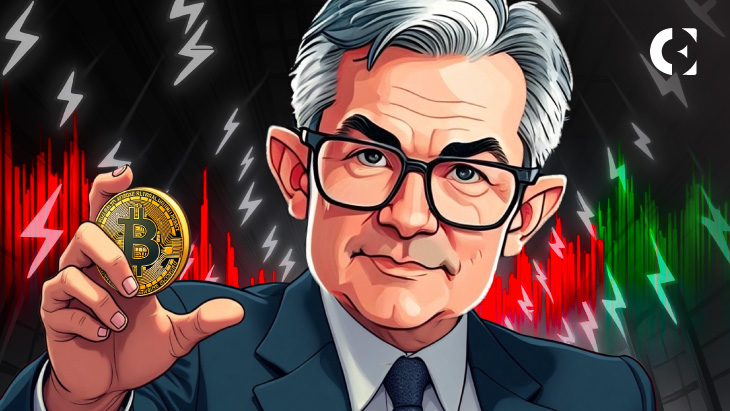- Powell warns tariffs may boost inflation and slow growth amid rising market uncertainty.
- U.S. stock indexes fell sharply after Fed’s caution and Nvidia’s China-related charge.
- Retail sales spike as consumers rush purchases ahead of anticipated tariff-driven price hikes.
Federal Reserve Chair Jerome Powell cautioned Wednesday about growing economic uncertainty tied to President Donald Trump’s tariff policies, warning they have hit major U.S. stock indices.
Speaking at the Economic Club of Chicago – in an interview with Raghuram Rajan (University of Chicago Booth professor and former Reserve Bank of India Governor) – Powell stated the announced trade measures were larger than expected and will likely result in higher inflation and weaker growth.
Markets reacted immediately following Powell’s statement near the end of the trading session. The Dow Jones Industrial Average dropped 690 points, 1.7%. The S&P 500 fell 2.2%, while the Nasdaq Composite experienced the largest decline, closing 3% lower.
Related: China Stocks Crash 7% While US Markets Soar: Crypto Implications
Investor sentiment had already been under pressure following a disclosure by chipmaker Nvidia. The company reported a $5.5 billion charge associated with new export restrictions to China imposed under the Trump administration. The announcement heightened market fears, compounding the effect of Powell’s caution on growth and inflation.
What is the Fed’s Stance on Interest Rates
Powell explained the Federal Reserve will adopt a “wait-and-see” approach before changing interest rates, He cited the need for greater clarity regarding the economic effects of current trade policies.
These remarks were Powell’s first public comments since the White House temporarily paused some reciprocal tariffs last week (a move notably excluding tariffs on China).
The pause in tariffs prompted a market recovery. Stocks surged in response to the announcement, rebounding from initial losses tied to the earlier trade measures. However, Powell’s comments suggested that the overall economic outlook remains uncertain due to the scale of the policy changes.
Why Did March Retail Sales Jump Despite Economic Worries?
Contrasting the market jitters, new data from the U.S. Census Bureau showed a surprise jump in retail activity. March sales increased over 1.4%, marking the biggest monthly rise in over two years.
Related: Crypto Markets Lose $1.25 Billion as Fed Warns of Higher Inflation in 2025
Analysts partly attribute this surge to consumers buying ahead of anticipated higher prices from tariffs.
Disclaimer: The information presented in this article is for informational and educational purposes only. The article does not constitute financial advice or advice of any kind. Coin Edition is not responsible for any losses incurred as a result of the utilization of content, products, or services mentioned. Readers are advised to exercise caution before taking any action related to the company.







